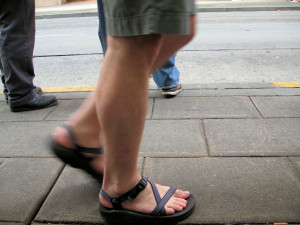Contributor: Lindsay Ensor
 Achieving the dream of higher education following interruption due to struggles with addiction is no easy feat. But, it isn’t impossible.
Achieving the dream of higher education following interruption due to struggles with addiction is no easy feat. But, it isn’t impossible.
Achieving the necessary credit for graduating requires diligently working closely with the right people within the University or college. Often, students who had to take a break from their education due to addiction suffered the ill consequences of suffering grades in their first efforts in the classroom.
Some of those courses may need to be repeated, but at the very least, they will influence their grade point average. If rehab was successful, hopefully they have a renewed focus and they would be more successful academically. Even though graduation may be delayed due to the need to repeat courses or take things a bit slower, there is definitely hope for finishing up their higher education.
Getting the Best Help Right Away
Students should work very closely with their academic advisor who can help them identify appropriate support resources. Often times an advisor knows where to refer the students. These resources can include on campus counseling centers, academic support groups and study groups, staff support, and much more.
Their academic advisor can help them get back on the right track academically speaking, creating a schedule that will fit their current life needs.
The Vital Role of the Academic Adviser
The academic advisor’s role is vital to the returning student who may need certain class times in order to maintain personal therapies and other outside rehabilitation services.
Support for the college student is crucial, whether it comes from those on or off campus. If the college campus is far from home or from where the rehabilitation services took place, then it is necessary for the student to reestablish a support system on campus.
Drugs and Alcohol Are Often More Accessible at College
Depending on the addiction the student is fighting, another hurdle could be the 24/7 accesses to drugs and alcohol on a college campus. Thos types of recreational activities tend to be one of the active forms of entertainment and are readily available on most college campuses.
More and more colleges are experiencing the return of students following addiction recovery who want to finish up their degrees. One example is Miami University in Oxford, Ohio, who offers recovery support on campus open to students fighting any sort of addiction. Many schools recognize the need to support their students in all of life’s circumstances and help guide them along the path of learning.
About the Author:
Lindsay Ensor
BS Psychology and Counseling
Member of National Alliance on Mental Illness
Blogger: www.healingandsurviving.com
